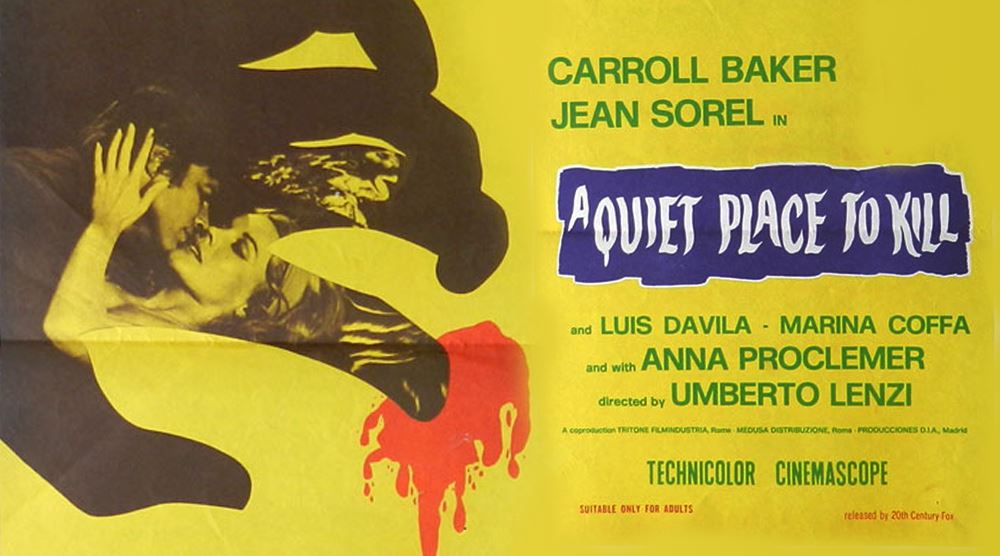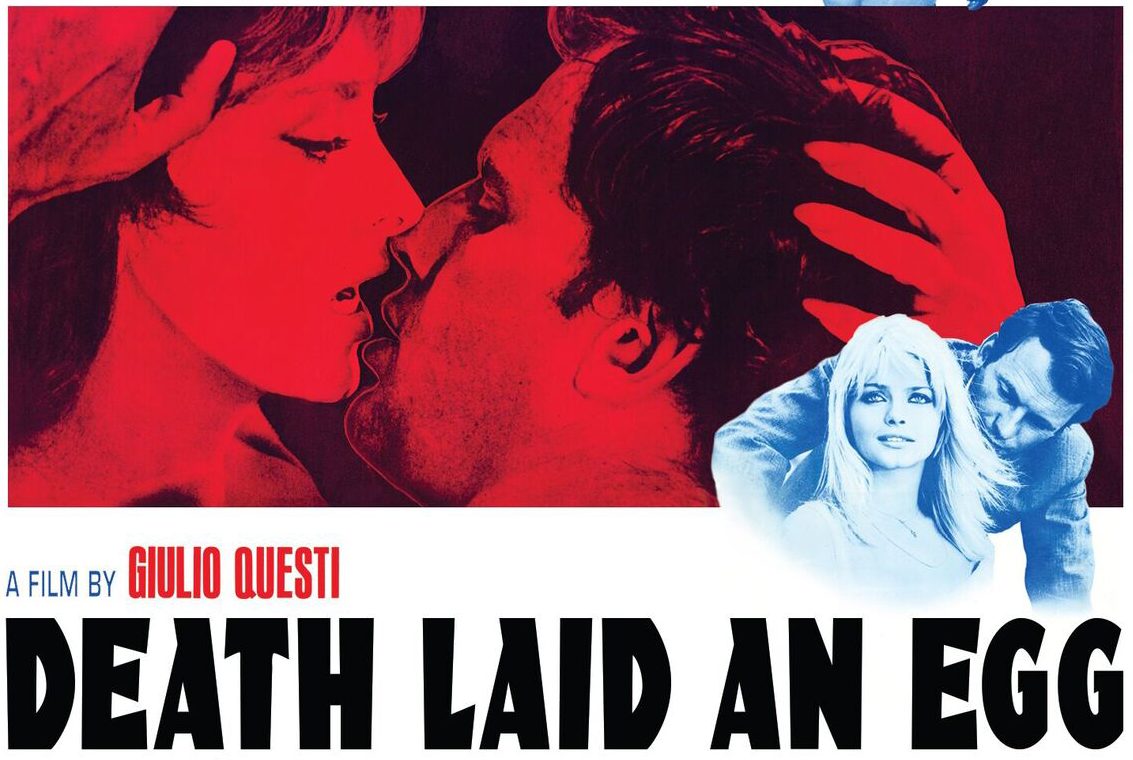Maurice has a problem-his wives keep trying to kill him. Three years after her unsuccessful attempt, his ex-wife Helen, now a racing driver, is involved in a big smash during a qualifying event. Maurice's new wife, Constance, invites her to recuperate with them. After mulling over the offer, Helen ditches her middle-aged boyf and drives to Majorca (presumably aided by a boat at some point), where she's welcomed with suspiciously open arms by her ex and his newbie. It's not long before Maurice is attempting to make up for lost time by worming his way into Helen's pants, assassination attempts apparently forgiven. Constance reveals her unhappiness to Helen; she knows Maurice is only interested in her for her money, and the two of them acknowledge that Maurice is their 'vice'. So, another assassination attempt is in order! This one, staged on a yacht, goes pretty drastically wrong, however, ending up with Constance dying. Seconds later, friends of hers pull up alongside in their yacht, necessitating a staged capsizing to dispose of the body. Just when Helen and Maurice think they're in the clear, Constance's daughter Susan turns up, armed with an armful of potentially 'armful suspicions. What's more, Maurice's scopophilic friend Harry turns out to have been filming the yachts at the time of the capsizing, presumably capturing details of the murder. In such circumstances, it's unsurprising that Helen and Maurice fall into the soft, enveloping grip of a big dose of paranoia...
This was one of the last of the main wave of beautiful-rich-people-lazing-in-the-sunshine gialli, a subgenre which was Lenzi's speciality for a couple of years. Argento-y black gloved killers are very much not in evidence; there are two deaths, only one of which is truly pre-meditated. What is in evidence are the usual tropes: sunshine, sea, sex and Sorel. The decor is fabulously/horrendously 60s, the music is that mix of jaunty numbers, ballads and do-bee-do chanting which is unmistakeably giallo, and some of the characters are not, believe it or not, all that they seem. In short, this is comfortable territory for those of you who are familiar with the genre (which would be those of you who understood what I said above re: orgasms and quiet places).
There's nothing especially outstanding about this film; enjoyment is likely to be derived from the cosy comforts detailed above. The paranoia which grips the murderous couple isn't necessarily going to translate to the audience, as they've dispatched arguably the most sympathetic character. Neither Carroll Baker nor Jean Sorel were necessarily titans in the acting department either, although both turn in tolerable performances, Baker especially. It's just hard to really connect with the characters in these films, who inhabit a world vastly different to that in which the majority of us reside. Sorel's Maurice, for example, seems to think that the only way to generate income is to find a woman to bankroll him. Get a job you sexy layabout!
There are some nice directorial flourishes, although Lenzi certainly isn't firing on all cylinders here. The locations are all attractively photographed, and he knows when to linger on a facial close-up and when to cut around things. (Or, at least his editor does.) The red veil which blows in frame-left to obscure Helen's face when she first kisses Maurice is a neat/heavy-handed (depending on your tolerance for symbolism in films) touch, and the frequent zooms don't grate. All in all, it's a competent craftsman crafting a competent product.
There are some tell-tale signs of Future Lenzi, mostly in the scene at the pigeon shooting venue. Those of us who've been clay pigeon shooting and wondered why the clay discs are referred to as 'pigeons' will find out why here, amid much actual avian carnage. Two of Maurice's friends advise Susan to take up shooting, claiming that killing animals sublimates an apparently innate human desire to murder. If that is indeed the case, Lenzi's filmmaking career must have saved countless lives, especially in the early eighties.
The film ends with evil apparently winning out, as we watch the final pieces of a complex plan fall into place, before a last minute twist confounds the plotters. This was possibly an imposed ending, as a concession to a 'evil-must-pay' strain of morality, but possibly not; it's a neat twist which gives the film an extra punch. SPOILERS FROM HERE The discovery of the corpse of Constance, legs bound by a thick rope, right at the site of Helen's crash* might be a bit too convenient, but fuck it, it makes for a mighty neat resolution. Personally I'd have liked Albert Dalbes' camera-obsessed doctor** to have popped up again, having been filming the scene of the accident. It would've been more incongruous than the body being discovered in that same location, sure, but the idea that he happened to film the yacht shenanigans without actually seeing what happened is pretty ludicrous.*** Even as is, the ending foregrounds the fact that this is a film we're watching, intended as entertainment, and entertainment is what we've gotten.
*(STILL SPOILERS) Bearing in mind her eventual role in the plot, you have to admire the cojones of Susan to insist that the police renew the search for her mother's body. She clearly puts such stock in verisimilitude of performance that she's willing to jeopardise the entire plan.
|
|
**Note to Dr Dalbes: if you’re watching some footage with two people, and said footage may incriminate them in a murder, and if they ask you if anyone knows you’re there, say yes!
***Also ludicrous is the manner in which Helen and Maurice can apparently see the minutest details of the rescue search from their perch, which is apparently the same magical place from which Dalbes filmed their antics. |


 RSS Feed
RSS Feed
